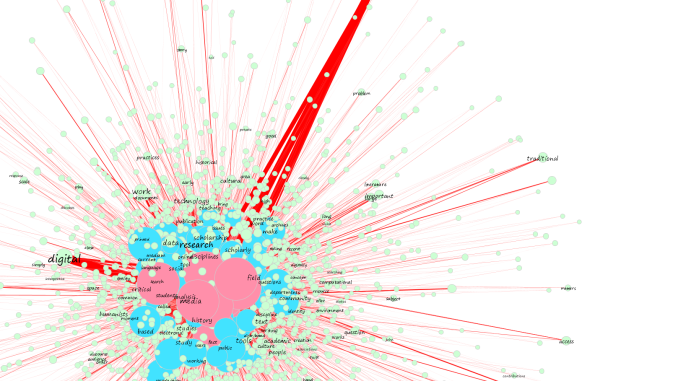
Hello everyone! I am Yikun from MA Digital Humanities. I am an international student from China. This article will share what I know about career options in digital humanities.
First, we need to know what skills we could learn from MA Digital Humanities. We have a compulsory module called Coding and the humanities, a course for starters to learn Python, a universal coding language. In this digital era, technical skills are very beneficial for job-seeking. Except for Coding, we also know various digital tools for digital humanities research. If students want to develop their technical skills further, they could also take optional modules like Data Visualisation, Data Analysis, etc. The design of courses would not be limited to developing students’ technical skills. We also collaborate with classmates to do a practical research project. For example, lecturers from my optional module require us to prepare an AI product proposal in a few weeks and present it to teachers afterwards. We cultivate teamwork, analytical, creative, and presentation skills in this project. All of them could give us an edge in enterprises.
Apart from skills gained from courses, our department also provides many resources. Our lecturer sends us opportunities for internships from time to time. They also invite guest speakers to give a keynote speech frequently. Most of the speakers enjoy a very excellent reputation in the field, like the editor of a DH journal, the representative of DH lab, etc.
Due to the diversity of optional modules, DH alumni go to various industries like GLAM(Galleries, Libraries, Archives, Museums) sectors, media, marketing, publishing, gaming, and even entrepreneurship.
As far as I know, some alumni have no technical background before MA study, but afterwards, they work as game developers, designers, data analysts. I must mention that they must work very hard and spend some extra time working on their technical skills.
In addition, students can also choose to progress to PhD study. I have been hesitating about which direction I should choose. And I feel pleased that teachers give me comfort and help. I talked about this with my personal mentor. He was very patient, listening to my worries, and then encouraged me to explore London, talking with people with different people. I also discussed this with my module convenor. He was very friendly and willing to recommend supervisors fitting for my research interest if needed.
Our department (Department of Digital Humanities) has five master programes, and my programe, Digital Humanities, is only one of them. In this case, this article may be only about career options for MA Digital Humanities. Other programes may have similarities with our programes but also differences for sure.
More information:
- Read Huan’s blog on a day as a Digital Humanities MA student
- Read Yikun’s blog on what you should know about Digital Humanities
- Explore the KCL Digital Humanities MA website

Leave a Reply